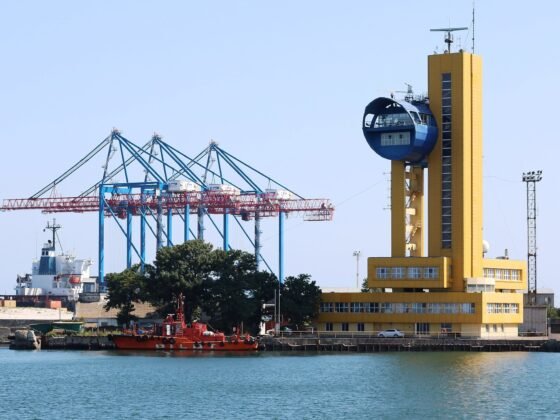Since February 24, 2022, the multinational corporations (MNCs) running businesses in Russia have encountered challenges rarely dealt with at business schools. They face ethical dilemmas and feel strong pressure from their shareholders and stakeholders, forcing corporate executives to make decisions that go well beyond usual business strategizing. Hundreds of companies have decided to divest, withdraw, or scale down their operations in Russia. In contrast, others have justified a decision to stay by citing their responsibility toward their employees in Russia and their unwillingness to deprive Russia’s population of essential goods such as food and medical supplies. How does public pressure affect corporate behavior and reputation? What distinguishes the shaming campaigns of 2022 on the MNCs that decided to stay in Russia? To answer these questions, we compared them to two seminal 20th-century boycott campaigns: activist campaigns related to Apartheid South Africa and the so-called “Boycott, Divestment and Sanctions” (BDS) movement, a Palestinian-led effort promoting boycotts, divestments, and economic sanctions against Israel.
Background
While racial segregation laws had been present in South Africa since Europeans colonized the land, they became harshly enforced in 1948 after the National Party came to power. Laws under the oppressive Apartheid regime included the segregation of residential and business areas, the prohibition of interracial marriage or sex, and the legalization of violence by police forces to torture or to kill. In 1958, a decade after Apartheid officially began, the call for a boycott of South African businesses, goods, culture, academics, and the government was initiated by African National Congress (ANC) leader Albert Luthuli. Throughout the 36 years of boycott efforts, the British Anti-Apartheid Movement (AAM) was one of the main and most influential international organizations promoting the end of the Apartheid regime. The AAM, along with many other NGOs, continued implementing various boycott efforts until the democratic election of Nelson Mandela in 1994.
Inspired by the Anti-Apartheid campaign in South Africa, the Palestinian BDS movement was formed in 2005 by Omar Barghouti to combat international support for Israel’s oppression of Palestinians. Since 1948, the Israeli-Palestinian Conflict has been a major global issue, beginning with the declaration of Israel’s independence and the subsequent Arab-Israeli War. Territorial, ethnic, and religious conflicts resulted in two additional international wars and two “intifadas”—consisting of several years of protests and bloody clashes between Israeli forces and Palestinians. After the conclusion of the second Intifada and the subsequent creation of the BDS, the main goals of the campaign have been to pressure Israel to withdraw from its settlements in the West Bank and remove the separation barrier, and to promote full equality of rights for Arabs and Palestinians in Israel, as well as the safe return of Palestinian refugees to their homes. Just as the Israeli-Palestinian conflict continues, so too do the efforts of the BDS to challenge international support for Israeli Apartheid and settler-colonialism. The BDS engages its supporters on social media, promotes online petitions, publishes articles, and organizes protests and anti-Israeli demonstrations. Moreover, academic boycotting in Western universities is also one of the instruments in BDS’s toolbox. Iconic human rights figures, such as Desmond Tutu, together with the Congress of South African Trade Unions, have endorsed the BDS campaign.
In response to Russia’s ongoing aggression toward Ukraine, since 2014 countries worldwide have imposed economic sanctions on Russia—attempting to cripple its economy and prevent an all-out invasion of Ukraine. In 2022, after sanctions failed to immediately thwart the war in Ukraine, individuals and groups of activists—in and outside Ukraine—launched boycott campaigns to pressure companies to withdraw their operations from Russia. Social media platforms like Facebook and Instagram have provided a medium to coordinate movements and publicly condemn Russia and its economic and political allies.
Boycott Campaigns
Public boycott campaigns are usually conducted by human rights advocates, NGOs, and grassroots activists. Before Russia’s invasion of Ukraine, government officials did not play a prominent role in propagating business boycotts.
The AAM in South Africa eventually gained steam by word of mouth and newspapers rather than consistent urging by the political leadership of the ANC. The AAM and other NGOs targeted high-profile MNCs like Shell, General Motors, Exxon, Ford, and IBM, pressing them to cease operations in South Africa. Many of these companies gave in to public pressure and withdrew from the country. However, it is noteworthy that Shell decided to resume operations in South Africa, explaining that its disinvestment would lead to many black South Africans losing their jobs. International public pressure led to subtle conflicts between Shell’s local South African branch and its headquarters in The Hague, together with branches across Europe and the United States.
In the BDS case, corporations operating in Israel have been among the primary targets. Some examples of companies that ceased operations in Israel include Veolia, G4S, Woolworths, HP, and Orange. BDS also targeted some notable MNCs like AXA, FIFA, and Puma, but they did not alter their business operations. Many companies and brands do not wish to leave Israel because of its commercial appeal as the most versatile and developed economy in the Middle East. Another reason is Israel’s tight economic and political connections to Western countries.
Public boycott campaigns related to the Russian invasion of Ukraine are much larger in scale than the two case studies discussed above. Activists and organizations face the difficult task of getting MNCs to withdraw from the 11th biggest economy in the world. Public boycott is largely aided by Western sanctions, which not only influence the Russian economy directly but also encourage various companies to downsize, disinvest, or abandon their operations in Russia. Nevertheless, public efforts to affect change in business behavior have gained traction. Telegram, a popular messaging service in Eastern Europe, has become central to coordinating the boycott campaigns. The app’s “BoycottRussiaBot,” developed by a group of Ukrainian volunteers, provides, for instance, information on whether a specific company has undertaken any measures to leave the Russian market.
Another noteworthy nudging tool is Yale Chief Executive Leadership Institute’s list of companies graded on a scale of A-F for progress on their withdrawal. Boycott campaigns are not limited to the digital sphere. Protests in front of corporate offices, embassies, and government buildings have occurred in many (mostly Western) countries. All of these actions have been accompanied by an unprecedented public shaming campaign by many high-ranking Ukrainian government officials such as President Volodymyr Zelenskyy, Minister of Digital Transformation Mykhailo Fedorov, and Minister of Foreign Affairs Dmytro Kuleba.
Corporate Response
Corporate response to this wave of public activism, coupled with the Ukrainian government’s information campaign, has been deficient in damaging Russia’s economy significantly enough. According to a database maintained by the Kyiv School of Economics, as of November 6, 2022, 1,187 companies have stayed in Russia, 498 have scaled down, 140 have paused their activity, and 133 have completely withdrawn from Russia.
Why do so many companies stay in Russia despite the unpleasant public pressure and possible reputational harm? Many refer to contractual obligations. Others cite their responsibilities toward their Russian employees. Another popular explanation is that they do not want to punish ordinary people. Finally, some firms acknowledged that, most probably, their assets would end up in the hands of socially irresponsible China-owned companies or President Vladimir Putin’s cronies.
Some of these arguments might sound reasonable, but the “partial mobilization” announced by the Russian government on September 21, 2022, has made the situation even more confusing. The law obliges all enterprises operating in Russia to “assist with delivering the summons from the military to their employees, ensure the delivery of equipment to assembly points or military units, and provide buildings, communications, land plots, transport, and other material means as well as information.” Companies, including MNCs, must pay salaries to their mobilized employees. Russia’s military budget is increasing, meaning an even more significant share of corporate taxes is spent on weapons. It is no longer possible to stay out of politics, and many companies are approaching a grey zone that can be interpreted as complicity in war crimes.
Efficiency
In each case discussed—South Africa, Israel, and Russia—major boycotts and divestment campaigns have put intense social and political pressure on MNCs to curtail operations in target countries. Whether or not such campaigns are effective at forcing change among MNCs is difficult to determine since most MNCs that have decided to divest from target countries have cited business strategies as the justification for ceasing or reducing operations.
Evidence regarding the impact of boycott campaigns on corporate financial performance is controversial. Siew Hong Teoh et al. (1996) explored the Apartheid case and concluded that “despite the publicity of the boycott … political pressure had a little visible effect on the financial markets. Financial markets seem to have perceived the boycott to be merely a ‘sideshow.’” A RAND Corporation study (2015) shows that Palestinian-led BDS campaigns can cost Israel up to $47 billion over ten years. However, critics argue that BDS has failed, considering that foreign investment in Israel tripled from 2006 to 2015 while GDP doubled. Onur Kemal Tosun and Arman Eshraghi studied (2022) corporate decisions in Russia-Ukraine and argued that “a portfolio of remainers underperforms the leavers and the market benchmark. Investors impose a significant market penalty on the remainers.”
In the Russian case, it seems that public pressure is taken seriously by many executives, but they respond primarily by initiating PR campaigns (such as rebranding and corporate social responsibility (CSR) activities) rather than on the level of operational strategy.
The social and cultural impact of boycotts and divestment campaigns is, arguably, greater than the economic consequences experienced by MNCs. As media of communication evolve and the spread of information increases, boycott campaigns become increasingly globalized, and their reach widens. Public speakers and journalists mainly ran the anti-Apartheid campaigns; BDS focuses on grassroots engagement, mass media, public petitions, and public events; and the more recent anti-Russia campaigns have mainly taken to social media to spread their message. The public-facing tactics involved with all these modes of communication include naming and shaming, protesting, and other forms of public pressure to alter corporate behavior. These campaigns have found an audience primarily among intellectuals around the world, particularly in Western nations from which MNCs are based, resulting in student activism and institutional divestment in the academic sphere.
Implications
Although boycott and divestment campaigns have had significant economic, social, and cultural impact on a global scale, resulting in altered corporate behavior and diminished business operations in each targeted county, boycott campaigns have not been found to affect the conflict resolution processes in the countries they target. Apartheid continued for 36 years after the foundation of boycott campaigns, finally ending with the election of Nelson Mandela in 1994. Although boycott campaigns significantly reduced MNC presence in South Africa, potentially weakening the South African government, the end of Apartheid was not attributed to the pressure applied by boycott campaigns. For its part, the BDS Movement emerged after the conclusion of the second Intifada. Still, although Israel has not seen a period as violent as those years since then, the BDS movement’s principal goal of getting Israel to withdraw its settlements from the West Bank has not come closer to being achieved. Whether or not boycott campaigns against Russia will be instrumental in dismantling Putin’s invasion of Ukraine—by pressuring Russia’s oligarchs into prioritizing economic interests over military operations—is yet to be determined.
Julian Alin is an International Relations student at The University of Texas at Austin and an Undergraduate Fellow at the Clements Center for National Security and the Strauss Center for International Security and Law.
Abigail Eichenberg is an International Relations student at The University of Texas at Austin.
Volodymyr Kulikov is a Visiting Professor at The University of Texas at Austin.
Mykhaylo Simanovskyy is a dual Master’s student at the LBJ School of Public Affairs and the Center for Russian, Eastern European, and Eurasian Studies at the University of Texas, and a Graduate Researcher at the Global Disinformation Lab (GDIL).











